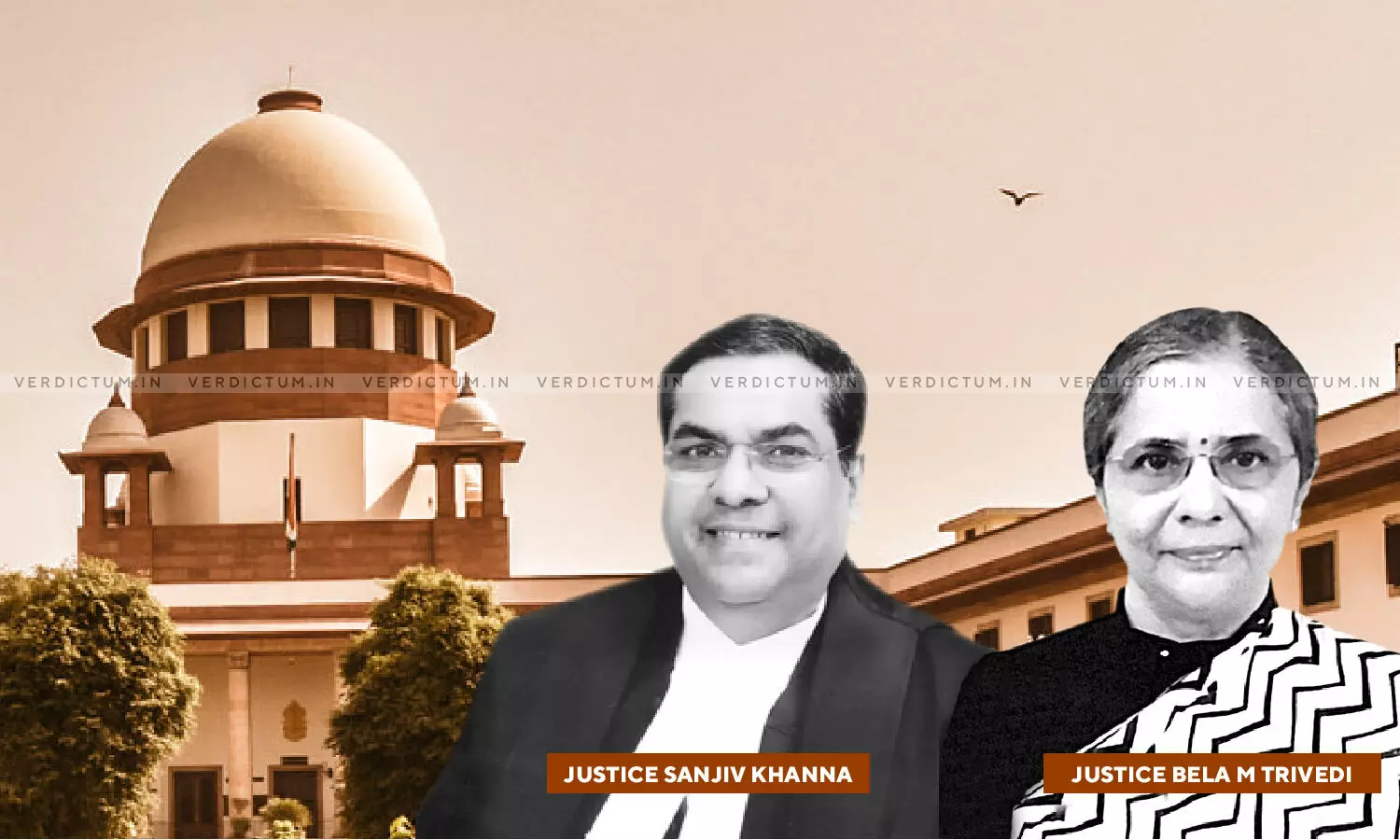
Sudden And Grave Provocation Before Occurance- SC Converts Conviction From Section 302 To Part I Section 304 IPC
 |
|A Supreme Court Bench of Justice Sanjiv Khanna and Justice Bela M Trivedi converted the conviction of the Appellant from Section 302 to Part I of Section 304 of the IPC on the ground that the Appellant had attacked the deceased due to grave and sudden provocation. The Court also reduced the sentence of the Appellant.
To that end, it was opined that "the deceased was addicted to alcohol and used to constantly torment, abuse and threaten the appellant. On the night of the occurrence, the deceased had consumed alcohol and had told the appellant to leave the house and if not, he would kill the appellant. There was sudden loss of self-control on account of a 'slow burn' reaction followed by the final and immediate provocation. There was temporary loss of self-control as the appellant had tried to kill himself by holding live electrical wires. Therefore, we hold that the acts of provocation on the basis of which the appellant caused the death of his brother, Dashrath Nirmalkar, were both sudden and grave and that there was loss of self-control."
Counsel Harinder Mohan Singh appeared on behalf of the Appellant before the Apex Court.
In this case, the Appellant had been convicted under Section 302 of the IPC, for the murder of his brother. The Appellant was sentenced to undergo imprisonment for life.
The Senior Medical Officer at the Government District Hospital had proved the post-mortem report and testified that the deceased had died due to coma as a result of shock, in view of the injuries given on the scalp of his head, causing multiple fractures to the skull bone.
The Supreme Court agreed with the High Court and Trial Court with regard to the involvement of the Appellant as the perpetrator and opined that there was ample evidence and material implicating and establishing the Appellant's involvement beyond doubt. To that end, it was opined that "Section 106 of the Evidence Act gets attracted and in the absence of any break-in or third-party involvement, the chain of facts and circumstances established beyond doubt, bares that the appellant and no other person was the perpetrator who had inflicted the injuries".
Before the Supreme Court, the question of fact was the loss of self-control of the Appellant by grave and sudden provocation.
To that end, the Supreme Court opined that the case will fall under Exception 1 to Section 300 of IPC, which deals with circumstances when culpable homicide does not amount to murder. In that context, the Court took note of the facts that the deceased used to frequently drink alcohol, barely interacted with the family, and often quarreled with the Appellant.
To interpret Exception 1 to Section 300 of IPC, the Court relied on the judgment passed in the case of KM Nanavati vs State of Maharashtra, in which the Court had listed the conditions which must be satisfied for the exception to be invoked. To that end, the Court said that "The law attaches great importance to two things when defence of provocation is taken under Exception 1 to Section 300 of the IPC. First, whether there was an intervening period for the passion to cool and for the accused to regain dominance and control over his mind. Secondly, the mode of resentment should bear some relationship to the sort of provocation that has been given. The retaliation should be proportionate to the provocation."
The Court further opined that the gravity of the provocation can be assessed by taking into account the history of the abuse, and it need not be confined to the gravity of the final provocative act. To that end, the Court referred to the case of the prosecution to show motive, which was that the deceased was addicted to alcohol and used to torment, abuse and threaten the Appellant, and the deceased had done the same on the night of the occurrence.
The Court opined that this sudden loss of self-control of the Appellant was on account of a "slow burn" reaction, followed by the final and immediate provocation.
On the basis of facts, circumstances, and the legal position, the Court decided to apply the provocation exception and convert the conviction of the Appellant from Section 302 to Part I of Section 304 of the IPC.
As the Appellant had already suffered incarceration for over 10 years, the Court modified the sentence of imprisonment to the period already undergone and directed the release of the Appellant.
Therefore, the appeal was partly allowed.
Cause Title - Dauvaram Nirmalkar v. State of Chattisgarh
Click here to read/download the Judgment